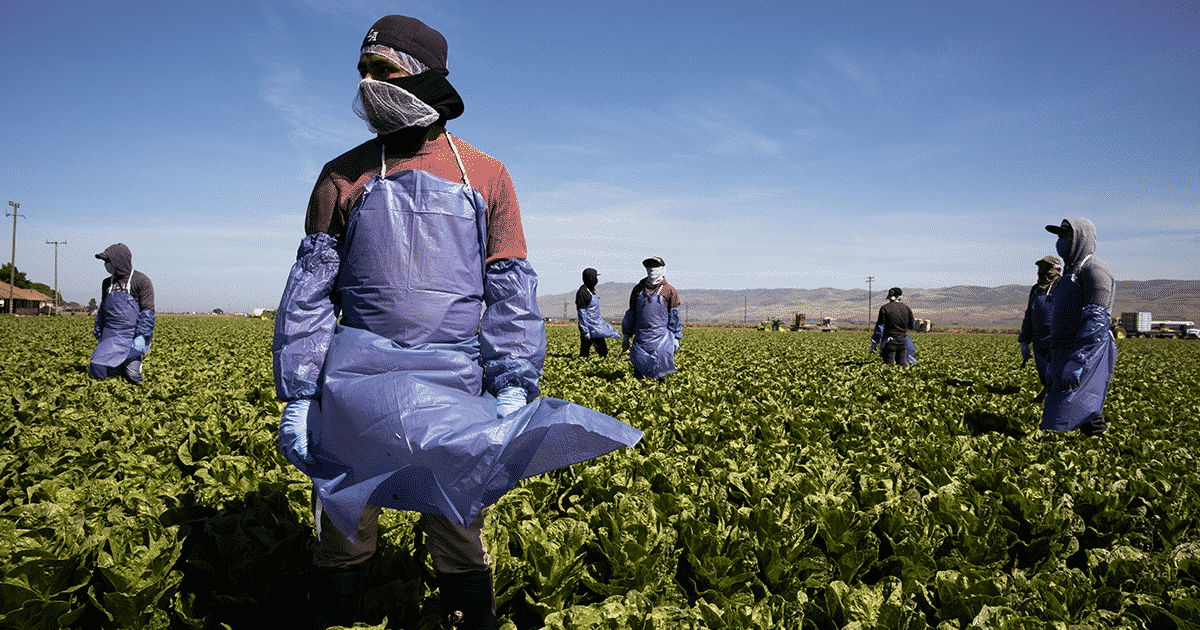
Otto Barenberg is a student at Harvard Law School and the Digital Director of OnLabor.
In today’s news and commentary, the UAW wins big in a last-minute deal with Daimler and a new DOL rule bolsters labor protections for farmworkers on temporary visas.
Late Friday evening, with just hours to spare before a planned strike, the United Automobile Workers (UAW) and Daimler Truck reached a tentative agreement raising wages by 25 percent raise over four years. The deal, which covers 7,300 workers across four factories in North Carolina and two distribution centers in Atlanta and Memphis, would also institute profit-sharing, tie wages to the cost of living, and equalize pay across the German company’s U.S. facilities. The victory for Daimler employees comes amid a concerted UAW campaign to build worker power across the South, where union density is less than half the national average. Last week, workers at Volkswagen’s Chattanooga, TN factory voted 2,628 to 985 to join the UAW. On May 13, workers at a Mercedes-Benz plant in Alabama will head to the polls in another highly anticipated test of the UAW’s Southern strength.
On Friday, the U.S. Department of Labor (DOL) promulgated a final rule expanding labor protections for farmworkers on temporary H-2A visas. The rule bars employers from retaliating against H-2A workers who refuse to attend “captive audience” meetings, clarifies farmworkers’ “for-cause” termination protections, and ensures farmworkers can bring guests to employer-provided housing. Guests include health care service providers, legal aid groups, and labor organizations. The final rule substantially modifies the DOL’s initial proposal, walking back a total ban on captive audience meetings and expanding guest access to worker housing. According to the agency, the final rule “will help prevent exploitation and abuse of agricultural workers and ensure that unscrupulous employers do not financially gain from their violations.” The H-2A program now admits over 300,000 foreign workers per year, up from just 74,000 one decade ago. An aging domestic agricultural labor force and crackdowns on hirings of undocumented workers have led to soaring employer demand for H-2A workers.
Only one percent of farmworkers are represented by unions. The National Labor Relations Act excludes farmworkers from its union organizing and collective bargaining protections, and just 14 states guarantee collective bargaining rights in the agricultural sector. The DOL claims authority to expand farmworker labor protections under the Immigration and Nationality Act, which compels the agency to ensure foreign workers do not undercut Americans’ wages and working conditions. Nonetheless, employers are likely to challenge the rule as exceeding the DOL’s statutory authority, eyeing a Supreme Court skeptical of agency action.
Industry groups have also signaled their plans to challenge the guest access provisions under the Supreme Court’s 2021 decision in Cedar Point Nursery v. Hassid. In that case, the Court struck down a California regulation requiring limited labor organizer access to agricultural employers’ property as a “per se physical taking” in violation of the Fifth Amendment. The DOL, however, has suggested its rule is more limited in scope, covering only employers who choose to benefit from the H-2A program. “There’s an easy way for employers to escape what they might view as an infringement on their property rights, which is not hiring these workers,” Andrew Lyubarsky, associate general counsel at the AFL-CIO, told Bloomberg Law.






Daily News & Commentary
Start your day with our roundup of the latest labor developments. See all
March 3
In today’s news and commentary, Texas dismantles their contracting program for minorities, NextEra settles an ERISA lawsuit, and Chipotle beats an age discrimination suit. Texas Acting Comptroller Kelly Hancock is being sued in state court for allegedly unlawfully dismantling the Historically Underutilized Business (HUB) program, a 1990s initiative signed by former Governor George W. Bush […]
March 2
Block lays off over 4,000 workers; H-1B fee data is revealed.
March 1
The NLRB officially rescinds the Biden-era standard for determining joint-employer status; the DOL proposes a rule that would rescind the Biden-era standard for determining independent contractor status; and Walmart pays $100 million for deceiving delivery drivers regarding wages and tips.
February 27
The Ninth Circuit allows Trump to dismantle certain government unions based on national security concerns; and the DOL set to focus enforcement on firms with “outsized market power.”
February 26
Workplace AI regulations proposed in Michigan; en banc D.C. Circuit hears oral argument in CFPB case; white police officers sue Philadelphia over DEI policy.
February 25
OSHA workplace inspections significantly drop in 2025; the Court denies a petition for certiorari to review a Minnesota law banning mandatory anti-union meetings at work; and the Court declines two petitions to determine whether Air Force service members should receive backpay as a result of religious challenges to the now-revoked COVID-19 vaccine mandate.